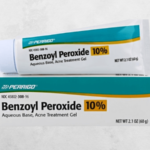What is Vitamin B3?
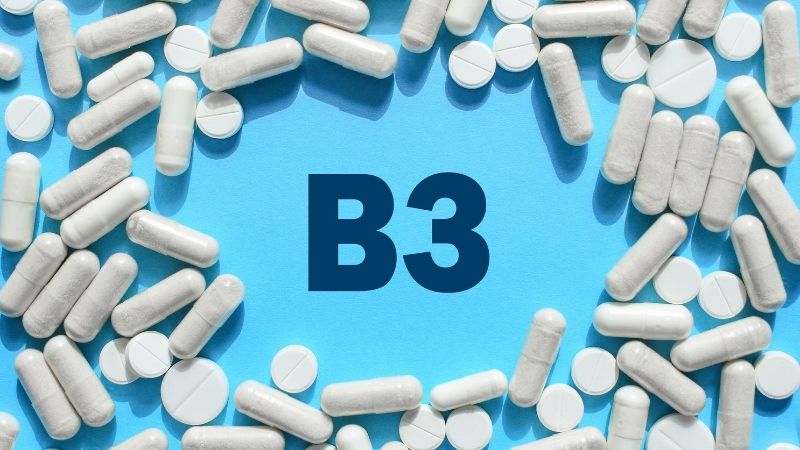
Vitamin B3 (Vitamin PP) or Niacin is one of the eight types of vitamin B essential to the body. Using large doses of Vitamin B3 helps reduce high cholesterol levels, treat respiratory and circulatory disorders, support blood circulation and normal brain function, and enhance memory.
Vitamin B3 is the common name for 2 compounds:
- Niacinamide (Nicotinamide): Found in many types of food and widely used in cosmetics.
- Niacin (Nicotinic Acid): Mainly used as a nutritional supplement and has the ability to lower bad cholesterol, triglycerides, and raise good cholesterol.
The effects of Vitamin B3 on health
– Vitamin B3 (Vitamin PP) or Niacin, is a water-soluble vitamin and not stored in the body. Therefore, you need to supplement Vitamin B3 through your daily diet.

– Liver, chicken, and salmon are rich sources of Niacin and are very good for the body.
– In addition, mushrooms, bread, potatoes… are also foods that contain a lot of Vitamin B3.
– Milk products should not be overlooked. Milk powder contains the necessary B vitamins to provide the body with the most complete nutrition.
Which skincare products contain Vitamin B3?
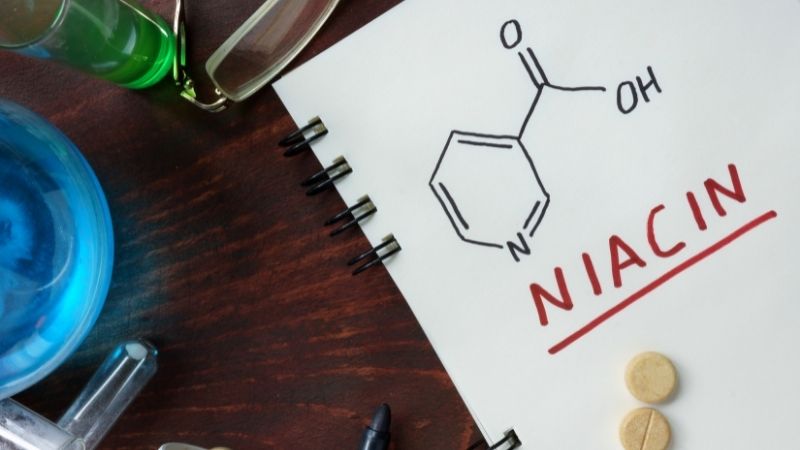
Vitamin B3 is also known as a great “weapon” to improve the skin of women with the benefits of whitening the skin, treating acne, and preventing aging. You can easily find vitamin B3 in body wash, shampoo, hair conditioner, and moisturizer…
Side effects of excessive use of Vitamin B3
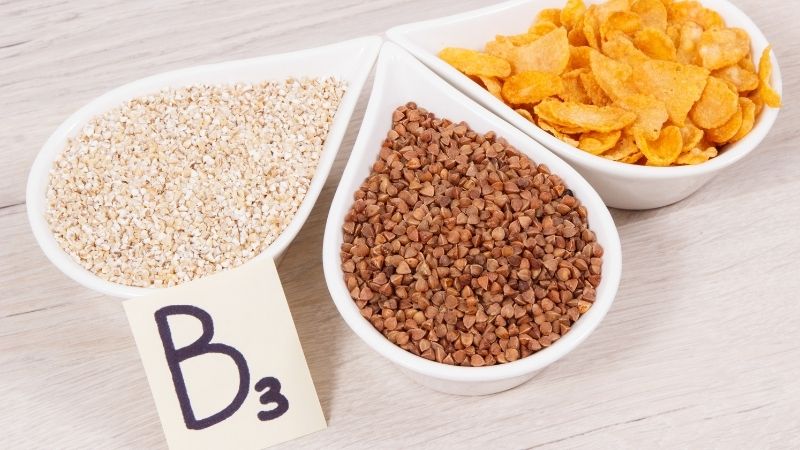
People who are allergic to Vitamin B3 may experience difficulty breathing, allergic reactions, swelling of the face, lips, tongue, and throat. In addition, you should see a doctor immediately if you experience these reactions: Irregular heartbeat, fainting, fever, redness under the skin, visual disturbances, yellowing of the skin and eyes, loss of taste, fatigue, difficulty breathing,….
Other possible side effects include: Abdominal pain, diarrhea, nausea, dizziness, sudden body itching, fever, headache, cough. These side effects may disappear after a few days, but you should notify your doctor if they persist and cause discomfort.
How to use Vitamin B3
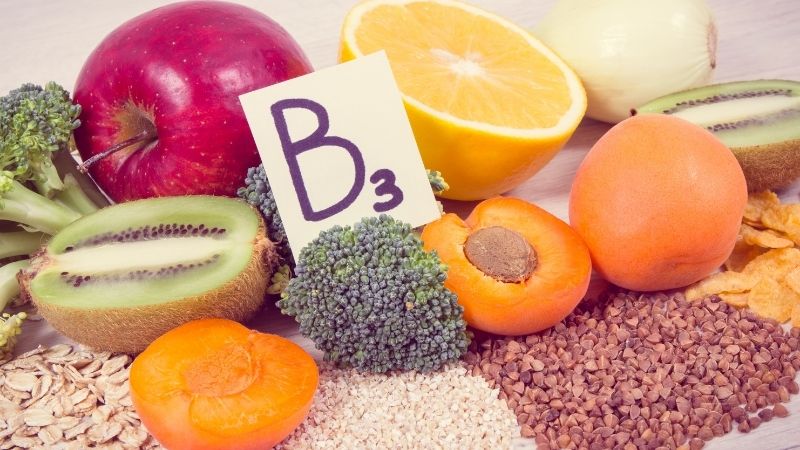
– Adult women need to supplement 15mg of Vitamin B3 per day, and 19mg/day for men.
– Children from 6 to 23 months old, need about 5-7mg of vitamin B3 per day. For children aged 6-13, they should supplement 12-16mg of Vitamin B3 per day.
– During pregnancy, mothers need to provide 17mg of vitamin B3 to the body per day.
– After giving birth, mothers need to provide 20mg of B3 during breastfeeding.
Precautions when using Vitamin B3

– Do not use Vitamin B3 supplements without the consent of a doctor. Vitamin B3 can cause flushing, nausea, and chest pain after use. However, these symptoms may subside in 30 minutes.
– Do not take vitamin B3 with medications for treating hypertension, blood-sugar-lowering drugs, and anti-coagulant drugs…
– Vitamin B3 should be stored at room temperature, away from moisture and light. Do not store vitamin B3 in the bathroom or freezer.
– When you forget a dose of Vitamin B3, you should take the supplement as soon as you remember. If the time for the next dose is close, you should skip the missed dose and continue taking the medicine as usual, especially do not double the dose in one intake. Taking an overdose can cause undesired side effects.

– For athletes, individuals with intense physical activities, or alcohol addiction, a higher amount of Vitamin B3 should be supplemented compared to normal individuals.
– In addition, for people with poor appetite, the elderly, and those with poor nutrition, daily diet may not provide sufficient vitamins and nutrients to the body, so drinking milk is necessary and recommended.
– You should go to large supermarkets and choose to buy powdered milk to ensure quality and avoid buying fake, low-quality products that can be harmful to your body when used.
– Besides vitamin B3, you should also supplement at least one capsule daily to provide enough nutrients for your body.
Vitamin B3 is an essential micronutrient for the body, helping to support healthy circulation. You should supplement enough Vitamin B3 for your body through a balanced diet or by using milk powder.
Combining Retinol With Niacinamide: Is It a Good Idea?
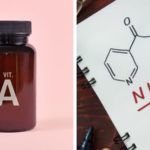 Niacinamide: Is It a Good Idea?’>
Niacinamide: Is It a Good Idea?’>Discover the amazing skin benefits of combining Retinol and Niacinamide! Learn how this powerful combination can help reveal a healthier and more radiant complexion.

























